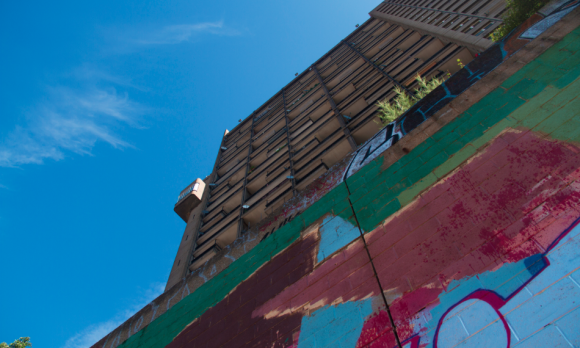SOS Project (St Giles Trust)
Sam Duberry was still an inmate in HMP Wandsworth when he first began working as a peer mentor for St Giles Trust’s SOS gangs project. Danielle Aumord hears the secret of his success. //
Clients say Sam’s experience puts him in a better position to relate to the young people he works with on the project, which has been running for seven years. The SOS project works mainly with 16-24 years old at risk of offending and ‘gang related activities’, providing help for clients with accommodation, training and employment as well as assistance with legal issues and court representation.
Now an SOS case worker, Sam has now been out of prison approximately 18 months and is still on probation. “Literally, you can still smell prison on me. I am the system. My clients feel and relate to that within me,” he says. “SOS is so needed in terms of solving the so-called ‘gang epidemic’ in the UK,” he explains. “The difference with our organisation is that more than 50 per cent of staff and volunteers have been involved with the judicial system. We understand what the client’s needs are because we have been through similar challenges.” Currently, they have projects running within 12 different boroughs including Brent, Westminster, RBKC, Hackney, Southwark and Lambeth.
“Many organizations such as Social Services can’t handle the clients they have so they refer to us. SOS has become the solution, especially through family services because they bombard us with clients.” General advice, guidance and encouragement are also a main staple within an SOS case worker’s brief. Sam finds that he’s often dropping pearls of wisdom for his clients to ponder upon from his own stack of life-experience.
“I have real answers for all their questions, to get them to think. The clients always get surprised, “says Sam, with a cheeky grin erupting across his face. “Clients will tell me once you’ve got a criminal record, you can’t get a job. I will tell them this is not true because I got a job. I had to do some training and volunteer first. Initially my license conditions hindered me, but we worked through that and now I get paid to work here.”
“These are some of the famous dilemmas (that the clients throw out at me): ‘The probation got it in for me.’ I tell them: ‘I’m on probation too, and they haven’t got it in for me! You make probation have it in for you. My probation officer gives me leeway, because he sees me making positive steps forward.”
Ultimately, a main aim of the case workers is help clients to change their behavioral patterns, through changing their thought patterns first. “Many of our clients live in two worlds, the criminal world and the other world. The SOS project gives our clients help to bring their feet firmly back to the other side (the legal side),” says Sam, as he explains how staff try to get their clients to weigh up their decisions. “Unfortunately if you consciously choose a lifestyle, then you have to deal with the consequences. A lot of the clients are not prepared for the consequences of their actions, so we help to look at this and hopefully make positive lifestyle changes.”
Sam describes the advice and guidance that St.Giles staff dish out as ‘tangible’ – something that they can put to practical use. He goes on to explain that although clients might not act on the advice immediately, if they store it and even use it at a later date, Sam feels that his job is done.















Write Your Comment